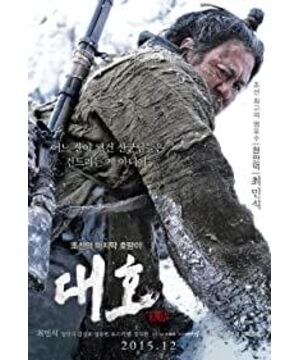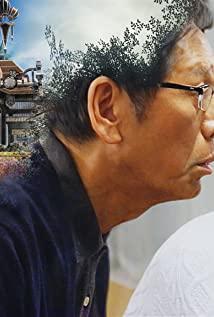From August 29, 1910 to August 15, 1945, Korea became a Japanese colony. It was the Japanese era of Japanese rule. The Japanese government imposed colonial rule on Korea and restricted the development of Korean national capitalism. They plundered North Korea's resources, made Japanese the national language and restricted the teaching of Korean, and implemented enslavement education for students. The story background of this Korean-style movie "Big Tiger" is in this era. "Big Tiger" symbolizes North Korea, the Taiji tiger, fighting desperately to the death, rebellious and defying power. In the end, the "big tiger" would rather fall off the cliff with all the jade and stones burnt than be the spoils of the invaders.
The metaphors and many symbolic meanings in the film make this anti-Japanese legend even more legendary. The anthropomorphic tiger "Shanjun" swept the Japanese army, and when he saw a devil tearing one, he rushed to the majestic momentum and special effects, and also threw it out. In the anti-Japanese movies of the Chinese Dynasty, there are several streets in the bridge section where the devils are torn with bare hands.
The fate between Jirisan Sansan and the catcher Cheon Mandok began with a heart of compassion. On the same day, Cheonmandok released the young Sanjun and sent wild pheasants to the young Sanjun who could not hunt in the ice and snow. After the death of his wife, he washed his hands with gold, stopped being a catcher, and guarded Jirisan Mountain and Joseon's last tiger, Sanjun. But the unreasonable demands of the Japanese invaders forced him to come out again, because his only son, Shi Hao, wanted to capture Shanjun to earn some money and marry a wife. The hunter who made a living by hunting gave up his hunting vocation and raised it again. Shotgun, this time, Qian Mande is not only protecting the tiger, but also the dignity of losing the country.
The consequences of not respecting nature are the same as the consequences of not respecting the sovereignty of other countries, and they will inevitably encounter the karma of the causal cycle. The Japanese army wantonly detonated explosives on Jirisan Mountain, making life utterly devastated. Shanjun is the guardian of Jirisan Mountain. It will never allow such a thing to happen. A desperate fight is inevitable. . The toughness and national self-esteem of the Korean nation to not admit defeat is reflected in Shanjun. People and tigers must live with dignity. If they cannot survive, it is better to end it calmly.
In the face of nature and life, people should maintain a sense of reverence, gratitude and pity. At the end of the film, the human and beasts each lick their calf affectionately, which has to be moving, and it is a great good to have a heart of pity. It's a pity that some people in this world are sometimes inferior to animals. If there is a cause, there will be an effect. If you plant a seed of goodwill, you will reap the reward of goodness in the end, but if you plant a flower of evil, you will eventually eat your own food. Bad fruit. The return of the tiger to the forest is destiny, and it is also an inevitable fate for the invaders to go back. The Japanese invaders who tried to invade the territory of others and domesticate the citizens of other countries, under the deterrence of the two atomic bombs in the United States, finally returned to their own territory, licking their wounds and plotting developing.
Speaking of the Korean acting school, Song Kang-ho, Jeon Do-yeon, and Choi Min-sik are the best Korean actors in my mind. There are many action scenes in the film, including running and hunting through the mountains. The 53-year-old Choi Min-sik all went into battle in person. This kind of professionalism is admirable. . Although several scenes between Cui Minzhi and Shanjun were special effects made by CG, such a non-physical performance really tested his acting skills. Facing the corpse of his son who was returned by Shanjun, Qian Mande saw the great sorrow of despair in his eyes. In the confrontation between Cui Minzhi and "Big Tiger", the domineering aura is definitely not inferior to Shanjun.
View more about The Tiger reviews











